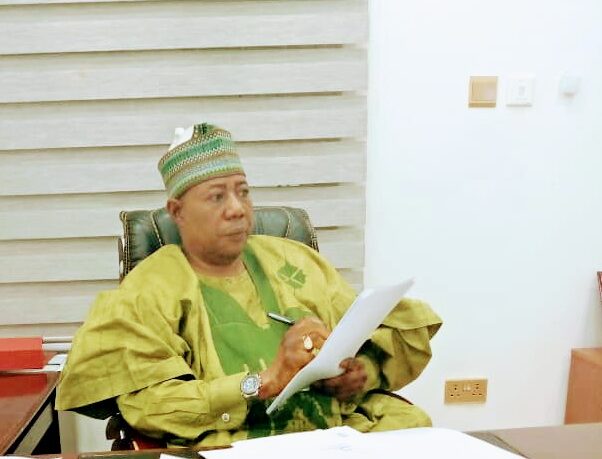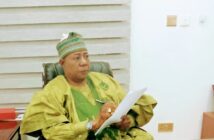To say Nigeria is not at the economic and social crossroads is to be economical with truth. All indices and factors have not been favourable for a while. There are two trajectories in the life of every nation: boom and burst. Nigeria is going through its burst right now. This is not peculiar to Nigeria. Even Advanced Societies pass through these hills and valley experiences sometimes.
Concatenation of factors engineered the current global economic turmoil, ranging from the era of COVID-19. For us in Nigeria, the lack or absence of refining local capacity has continued to pose huge challenge as earnings from crude oil sales are squandered on subsidy payment. Also, the assaults of greedy elements and criminals has forced the oil industry to produce below OPEC alloted quotas.
However, to continue lament over the economic and social quagmire in the country is like flogging a dead horse. Its needless. What is required at this time is strategic thinking, actions, commitment that will navigate and recalibrate the country back on the path of economic and social progress.
This burning desires and faith in his own capability and capacity to turn the tide around led President Bola Ahmed Tinubu to promise Nigerians during his electioneering campaigns, which he christened “Renewed Hope.” Having convincingly won the presidential election and assumed office, coupled with inauguration of his ministers, this is the right time to start setting agenda and interrogating processes and procedures to ensure the ministers sworn in on August 21st don’t slide into a comfort zone. If we are serious at all to pull our country together and out of despair and degeneration, it must not be business as usual.
“Talent is not enough,” is the title of a 2007 book written by the New York Best Selling Author, John C. Maxwell. In the book, he tried to explain why to be talented alone is not enough. He notes that talent must be accompanied by other factors to produce success. In like manner, President Tinubu’s appointment of talented people alone is not enough to cause the much needed transformation.
Despite a shaky start, occassioned by the removal of fuel subsidy, experts have continued to assure Nigerians of light at the end of the tunnel. One thing is very clear about the list of ministers appointed. They’re men who have at one time or the other proved their mettle in one sector of the economy or the other. However, purity of motive, dedication and commitment is needed to drive home this lofty Renewed Hope Mandate.
To create a clear roadmap and vision to guide the ministers, President Tinubu had on assumption of office enunciated a wide-range reforms in line with the Renewed Hope pledge he made to put Nigerians at the centre of government policies and address business unfriendly fiscal and monetary policies, especially multiplicity of taxes. Nobody is in doubt of the president’s preference for market-driven economy, especially the growing quest to maximise revenue growth for developmental purposes.
The president has not left anyone in doubt of the direction of his administration’s economic policy, which revolves on lifting impediments to a friendly business climate, revenue generation, elimination of multiple taxation, monetary policy reforms, ease of doing business, growth of the economy that would engender shared prosperity amongst the populace. All that is required is the sincerity of purpose by the ministers to implement and guide these laudable policies to fruition.
Development Economists have reached concensus that it will take more than mere expertise to pull the country out of conundrum. Hence, ministers must eschew selfish pursuit in the interest of national aspirations. Already, President Tinubu has set the ball rolling with enabling economic policies like the ambitious removal of fuel subsidy to encourage investment in the oil and gas industry. It was the concensus of oil and gas experts that the persistence of government subsidy discourages solid investments into the sector.
It was against this backdrop that Petroleum Industry Act (PIA) was enacted into law in 2021, to encourage investment flow into the sector. Thus, the removal of fuel subsidy is not entirely a Tinubu thing but climax of PIA that was started by the last administration.
The administration has also touched on the monetary policy reforms, which led to the Central Bank Bank (CBN) discarding the multiple foreign exchange FX rates it had hitherto maintained in favour of a unified exchange rate. The aim is to divert funds from arbitrage into meaningful investment in the plant, equipment and jobs that power the real economy.
President Tinubu’s economic policies that have been unveiled so far have received commendations from experts, just as they have given suggestions on the way forward. However, Nigerians are waiting and hoping to witness the much-expected economic turn-around that would herald an improved standard of living for all and inclusive growth.
The government should not stop at giving requisite stimulus by way of friendly policies to allow businesses to flourish in the country; it must not only issue orders to ameliorate the negative impact of the tax adjustments on businesses, but it should also equally evolve policies to unshackle the chokehold on households across affected sectors, and not exacerbate the plight of Nigerians.
It is still fresh in the memory of Nigerians how some immediate past ministers became lackadaisical in their ministries, leaving themselves and other government officials to display remarkable ineptitude. All they gave to everyone were excuses about why they were unable to complete certain projects. Finally, they bowed out merely seeking for forgiveness at a dinner point.
To avoid this kind of annoying and disappointing scenario, President Tinubu, In line with best global practices, should set up a committee that will deploy a team of taskforce, in collaboration with his office and that of the National Security Adviser (NSA), as well as the NFIU, on oversight monitoring of projects.
Specifically, the committee should report transactions and other related projects’ evaluation direct to his office to enable him know ministries, department and agencies (MDAs) that are performing and those that are not.
A nation’s economy is the superstructure on which all substructures relies; hence, the president’s swiftness at economic reforms. The ground work has been laid. The ministers have clear cut vision of the direction of government. As the implementing agents, ministers must discard playing politics with governance this time around in favour of national development.
Politicians, like leopards with different skin colours, who lost election and have vowed to disrupt every government policies and reforms the way they have started with the Tinubu administration must know that the long arm of the law will catch up with them.
– Ibrahim is director, Communication and Strategic Planning, of the Presidential Support Committee (PSC).



